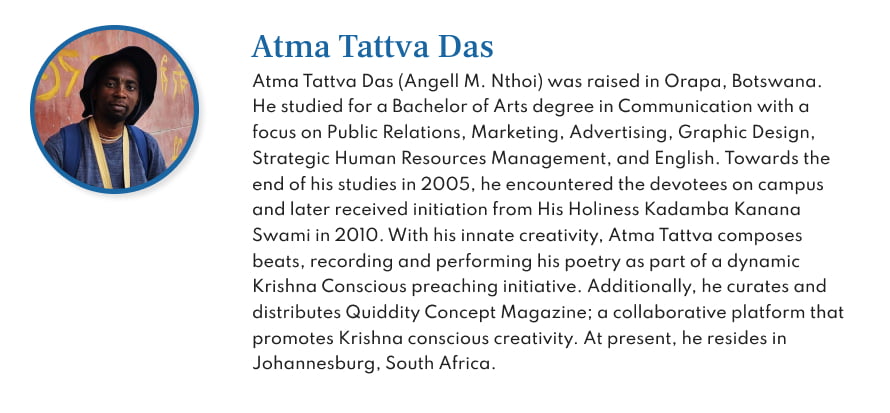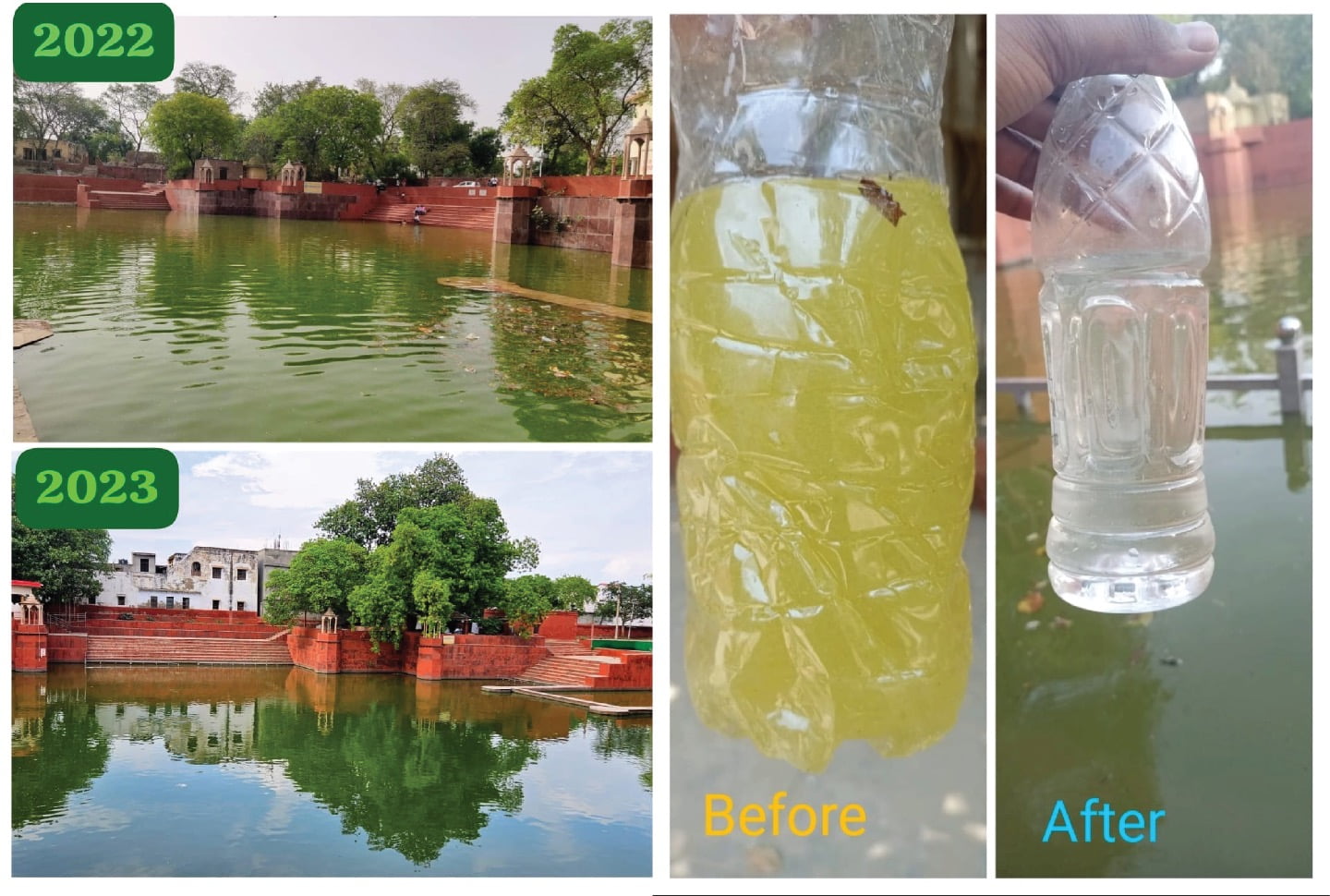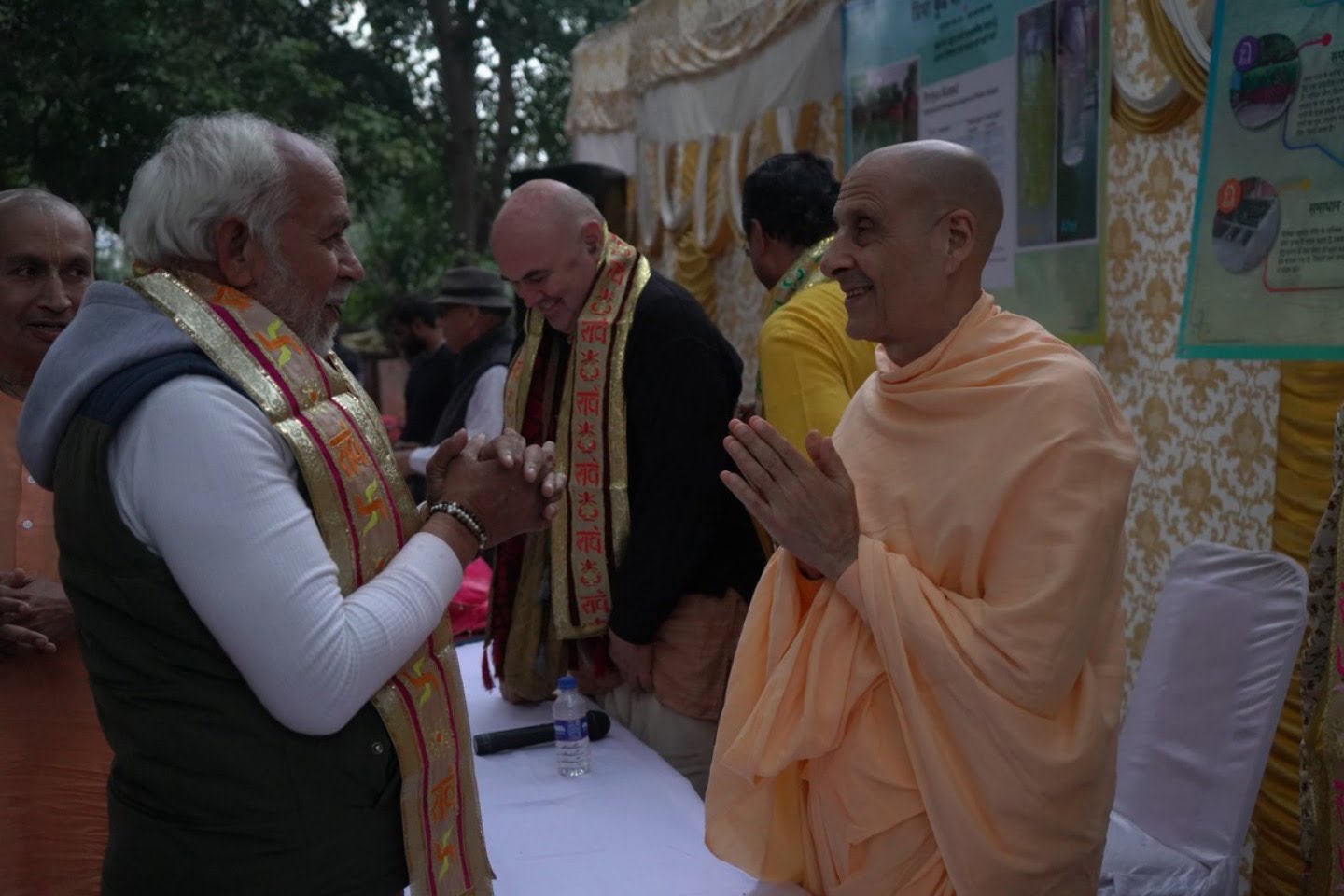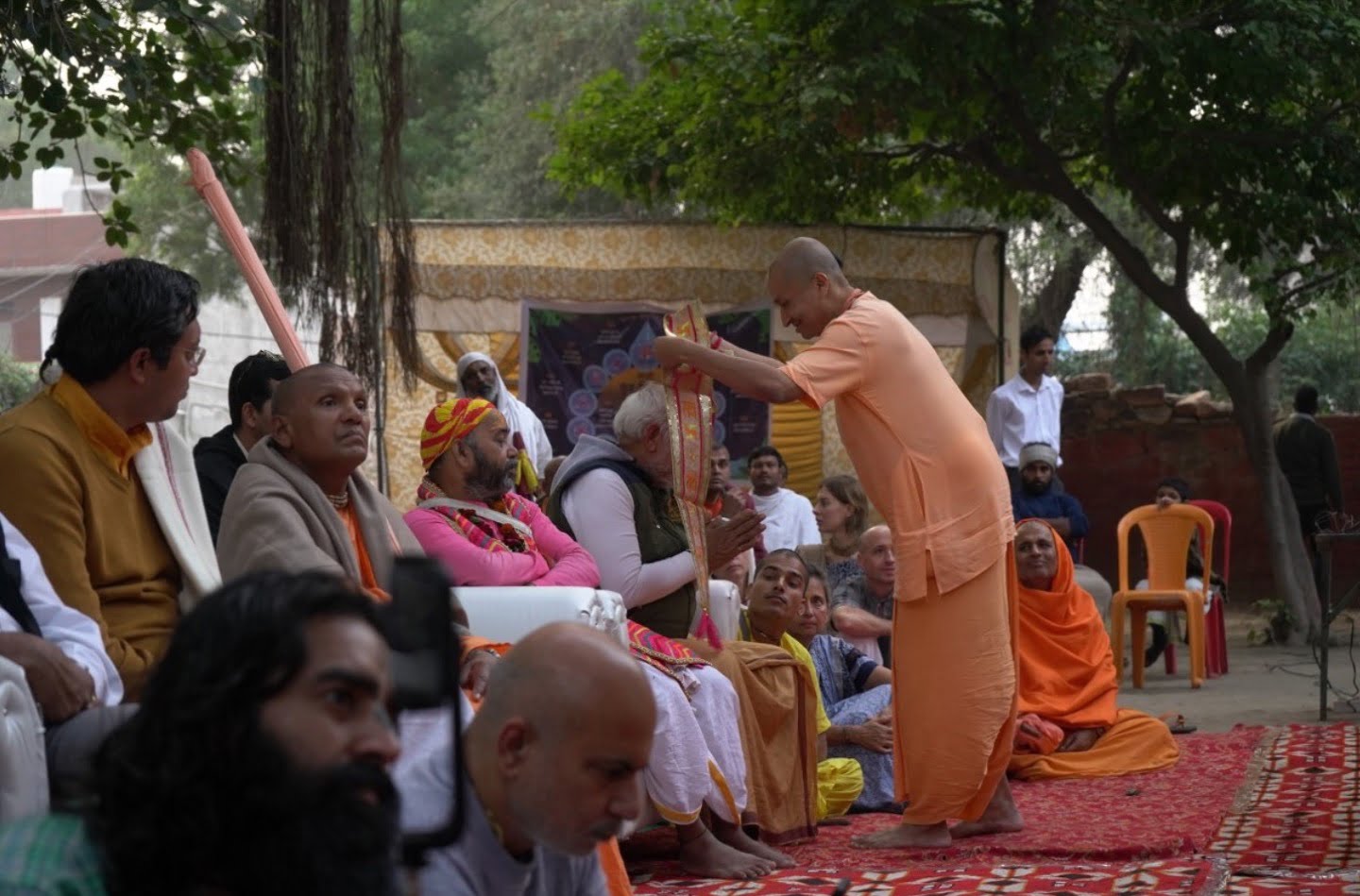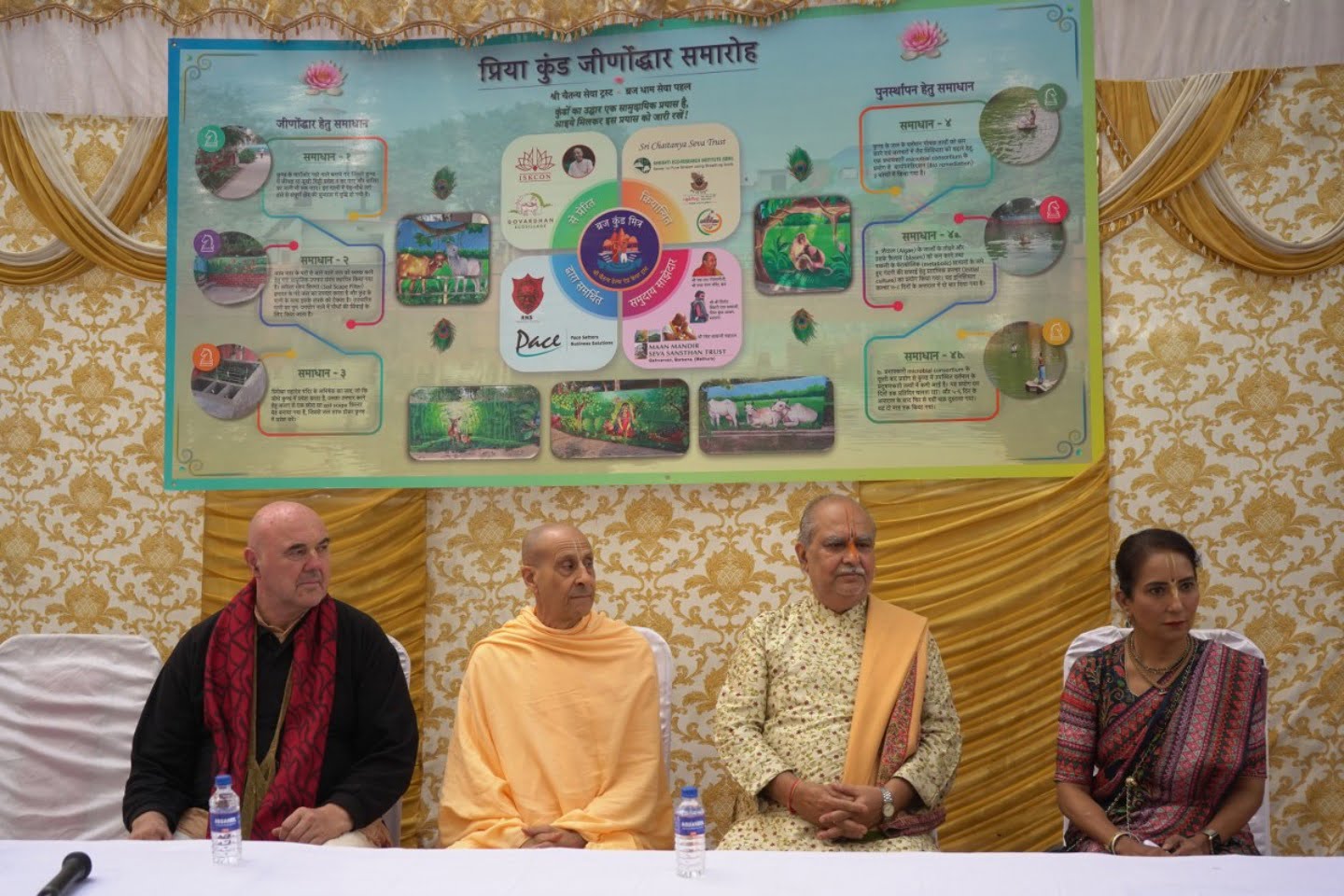Braj Kund Restoration Project Unites Sustainability and Sacred Space
By Atma Tattva Das, ISKCON News Staff Writer | Jan 13, 2024
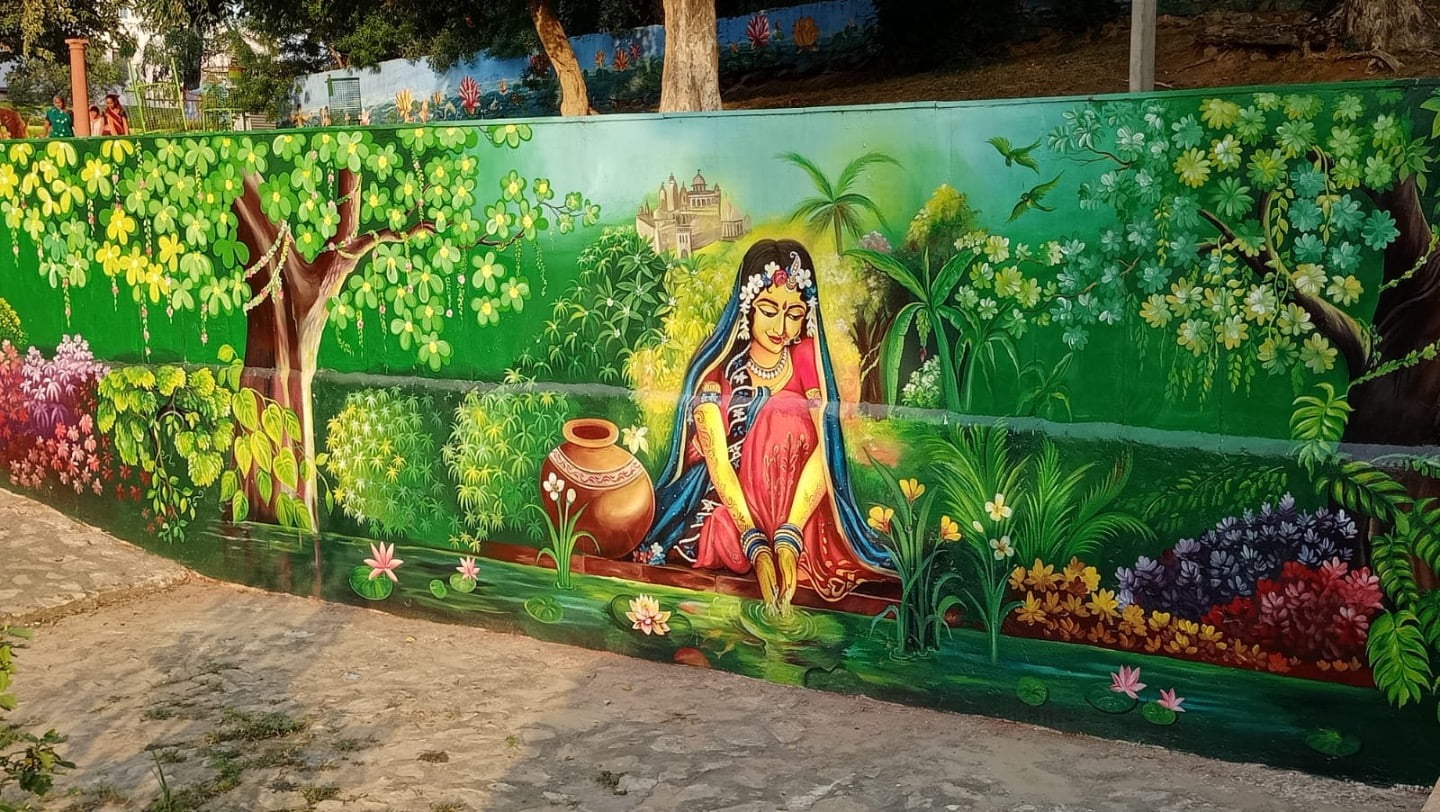
In an alignment of spiritual vision and environmental stewardship, The Braj Kund Restoration Project, created to restore the deteriorating quality of kundas in the Braj region, reflects the essence of sustainable development and holistic conservation. For the International Society for Krishna Consciousness (ISKCON) community, this initiative transcends the boundaries of ecological restoration; it signifies a sacred duty to preserve the sanctity of Braj – a place intrinsically connected to the divine pastimes of Lord Krishna.
The Braj Kund Restoration Project, an ambitious endeavor led by Gauranga Das, a GBC member with global duties for Human Resource Development and Capacity Building of ISKCON temples and Director of Govardhan Eco Village, signifies a harmonious collaboration between spiritual teachings and environmental activism. In a recent ISKCON News interview, Gauranga shared insights into the genesis of the project and its profound significance.
Gauranga began by intertwining spiritual teachings with the urgent need for environmental action. He stated, “The Braj Kund Restoration Project is not just about physical restoration; it’s about invoking a spiritual connection with the land. It’s a manifestation of our commitment to protect the sacred environment of Braj.”
His role in improving collaborations between ISKCON and governmental organizations echoes the visionary instructions of Srila Prabhupada. The project’s inception, rooted in the teachings of the Bhagavad Gita and Srila Prabhupada’s farm community vision, unveils a mission to support global climate resilience and align with the United Nations Sustainable Development Goals.
The inspiration behind The Braj Kund Restoration Project finds its origin in a report by NITI Aayog, revealing India’s impending water crisis. NITI Aayog, the National Institute for Transforming India, is a public policy think tank of the Indian government. Almost prophetically, the project emerged as a response to this crisis, specifically targeting the deteriorating quality of kundas, the ancient water bodies in the Braj region. Gauranga emphasized that these kundas, once constructed and managed by local communities, are now struggling for survival due to pollution, neglect, and encroachment. Gauranga recalled, “It was a wake-up call, urging us to take a stand for Braj’s ecological sanctity.”
Gauranga reflected, “These kundas are not just water bodies; they are living entities with spiritual significance. Restoring them is a collective responsibility, a duty bestowed upon us by our devotion to Lord Krishna.”
With a meticulous approach, the restoration project involves a comprehensive study of socio-economic, biodiversity, and water quality factors. Local species of plants and innovative technologies such as bioremediation and soilscape filters are employed. Gauranga underscored the importance of preserving aquatic biodiversity and the natural essence of the kundas. He noted, “Our approach is not just about purification; it’s about revitalization. We’re infusing life into these kundas, ensuring they thrive for generations to come.”
Gauranga candidly addressed the primary challenge – the mindset. As infrastructure development often hampers rather than protects water bodies, creating awareness becomes imperative. The project, transcending mere conservation, integrates local communities into the preservation process, employing individuals as “Kunda Mitras” to protect, educate, and nurture the kundas.
“The real challenge is inspiring a shift in consciousness. We’re not just restoring Kundas; we’re revitalizing minds to appreciate the symbiotic relationship between spirituality and ecology,” Gauranga affirmed.
The project recognizes the symbiotic relationship between tourism and the local economy. Gauranga highlighted the importance of evolving cultural norms, fostering a sense of ownership among locals, and inculcating a consciousness that views the Holy Dham as a sacred entity needing protection.
He urges, “Tourism can be a force for good. It’s about transforming visitors into stewards of Braj, respecting its sanctity, and contributing to its preservation.”
Gauranga shed light on the crucial partnerships integral to the project’s success. Local government bodies, environmental agencies, and communities have formed a collaborative alliance. He emphasized, “This isn’t a solitary effort. We’re working hand-in-hand with local authorities, environmental experts, and the residents themselves. It’s a collective endeavor to restore and protect.”
Gauranga elucidated the meticulous steps taken to ensure success. Rigorous water quality testing, community education programs, and the employment of eco-friendly technologies are the keystones of this initiative. He explained, “We’re not just addressing the symptoms; we’re tackling the root causes. By involving communities, we’re ensuring a sustainable model that stands the test of time.”
In the subsequent years, the foundational stones were laid. The project delved into exhaustive surveys across thirteen kundas, analyzing biodiversity, collecting water and sediment samples, and assessing the health of these water bodies. This period saw the meticulous formulation of a Detailed Project Report (DPR), a blueprint for the endeavor’s comprehensive execution.
Priya Kund Showcases the Project’s Aims
The project’s collective efforts materialized on December 2, 2023, marking a momentous event celebrating the successful restoration of Priya Kund. This success stands as a testament to the project’s potential and commitment.
As Priya Kund basks in the glow of rejuvenation, the Braj Kund Restoration Project looks ahead. Future endeavors include the revitalization of Pili Pokhar and Pawan Sarovar, employing groundbreaking technologies such as bio-enzymes for comprehensive ecological triumph.
Priya Kund’s success signals what’s achievable, but the journey ahead requires financial backing. Gauranga estimated Priya Kund’s intervention will cost around $200,000. While formal fundraising hasn’t commenced, he extends an open invitation to devotees and well-wishers to contribute to this transformative journey.
- Improved water quality at Priya Kund.
- Spiritual leaders and environmental experts from ISKCON-UPBTVP, Govardhan Eco-Village, and Braj Dham Seva Pehal gather at event.
- Shri Padmanabha Goswamiji, Shri Ramesh Babaji, Shri Vinod Bihari Babaji, H.H. Radhanath Swami, and other revered personalities at the event.
- Leaders addressing the pressing issue of water pollution in the holy kundas.
As the interview unfolded, it became evident that The Braj Kund Restoration Project is not merely an ecological initiative but a call to environmental holiness. Gauranga’s passion and insights illuminate the path ahead, advocating for a shift in consciousness, legal frameworks, and development models that seamlessly integrate spirituality, ecology, and societal well-being. It is hoped this project will inspire devotees and environmental enthusiasts alike to work cooperatively on these urgent preservation projects.
For those interested in a more in-depth report of the project and how you may support it, contact The Braj Kund Restoration Project coordinator’s assistant Anoop Goyal, via email or Whatsapp; +91 8591104977.
